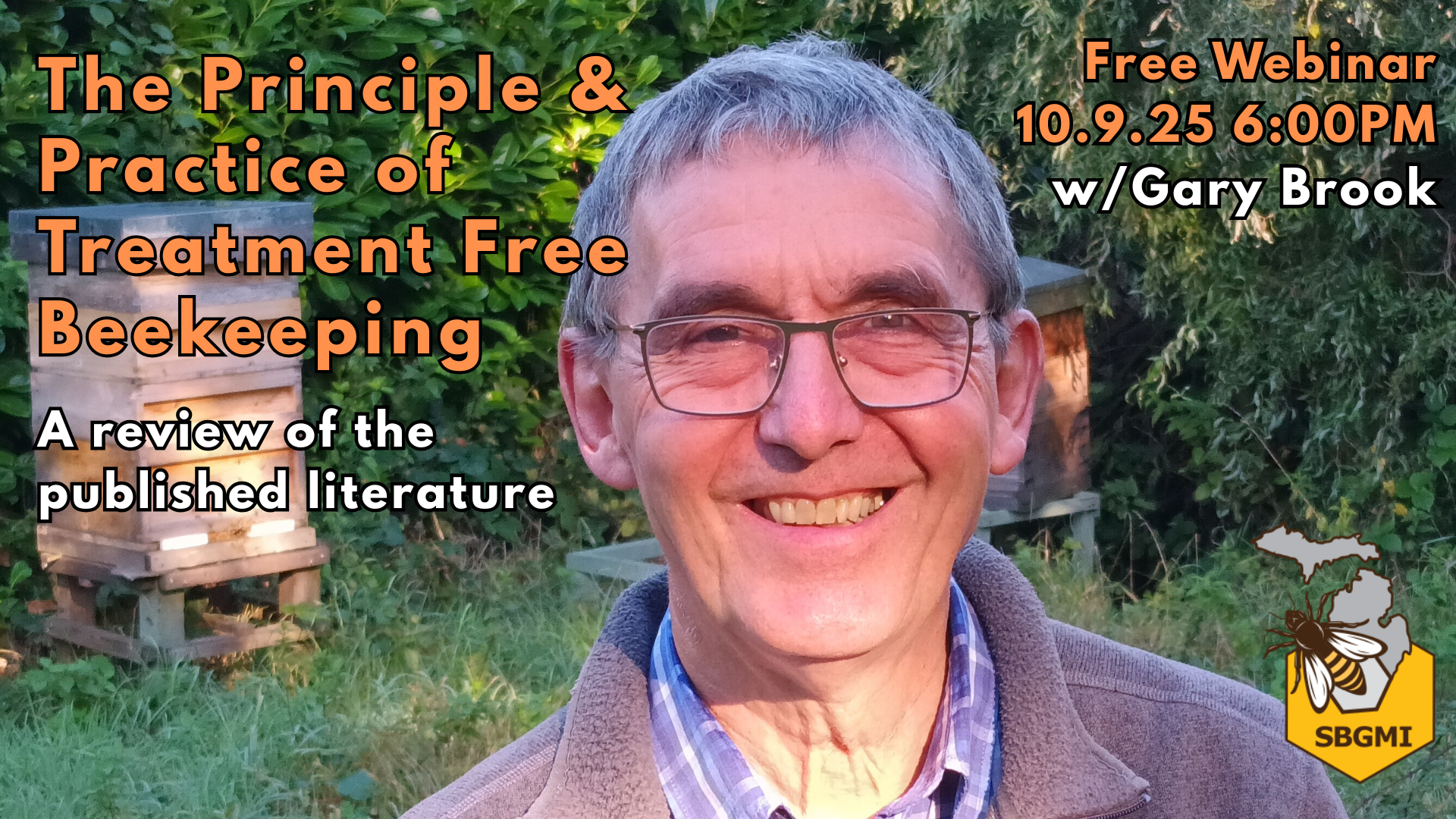Thursday, October 9, 2025 at 6:00PM – 8:00PM (EST)
This is a free event with donations optional. All proceeds go toward beekeeper education, future speaker events, and further development and outreach efforts of the SBGMI.
Since Varroa arrived UK in 1992, most honey bee colonies have been treated with these mite-killing pesticides several times a year. These chemicals can get into honey, bees wax and other hive products. They can also harm the bees themselves, causing both worker and queen bee losses. The research Gary has performed is called a systematic review and has already been published as a peer-review journal article . It shows that any beekeeper can breed bees that are Varroa-resistant within as little as 1-3 years, thus being able to stop using Varroacides forever.
Gary, along with his wife Jane, started keeping bees 12 years ago in 2013 when a friend moved some hives into their garden. They initially kept bees conventionally, but only using organic Varroacides, and last treated for Varroa five years ago, following when they noticed that their colonies had a naturally low Varroa mite drop. Since then they have managed their bees Varroa treatment-free and joined the growing treatment-free beekeeping fraternity, exchanging ideas with, and visiting leading lights in the field. They keep their bees on an average of five National/Large National hives and a few nucs.
Gary is a retired NHS consultant and medical researcher. Since retirement in 2023 he has written several articles for the BBKA News including the Apitherapy series in early 2025 and a more recent article on treatment-free beekeeping. He has also written a scientific review on treatment-free beekeeping which has been published in the Journal of Apicultural Research. He is active in his local BKA (South East Herts) where he gives regular talks, is heavily involved in the Introduction to Beekeeping course and plans to start a treatment-free interest group. He became a member of the BBKA Examinations Board in January 2025, hoping to contribute to the board using his expertise as a senior examiner in medicine and as a treatment-free beekeeper.
